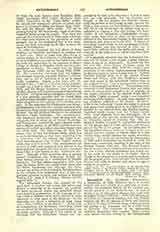

Autocephali (Gr., autokephaloi, independent), a designation in early Christian times of certain bishops who were subject to no patriarch or metropolitan, but depended directly on the triennial provincial synod or on the Apostolic See. In case of heresy, e.g., or other grave offenses, they could only be judged by these tribunals. Such were the bishops of Cyprus (cf. Council of Ephesus, Act. VII; Trullan Council, can. 39), the Bishops of Iberia and Armenia as late as the time of Photius, those of Britain before the coming of St. Augustine, and for a while those of Ravenna. The extension of the patriarchal authority diminished their number. Quite similar were certain Oriental bishops in the Patriarchates of Constantinople, Alexandria, and Antioch, who were subject directly to the patriarch of the civil (imperial) diocese to which they belonged, and who owed no obedience to their immediate metropolitans; they were not unlike the modern “exempt” bishops immediately subject to the Apostolic See. The most ancient list of them is given in the ninth-century “Notitia” of Leo the Wise, where they are entitled archbishops and metropolitans, though they had no suffragans. Occasionally priests were called “autocephali”, e.g. the clergy of a patriarchal diocese. (See Soz., Hist. Eccl., VI, 21, and Eus., Hist. Eccl., V, 23, with the note of Valesius, also Bishop. EXEMPTION, RAVENNA.)
THOMAS J. SHEEHAN

